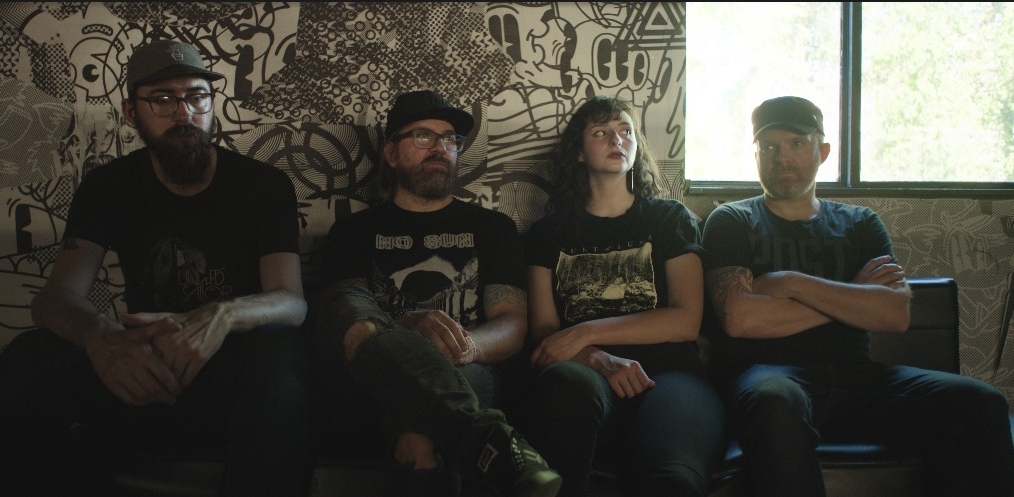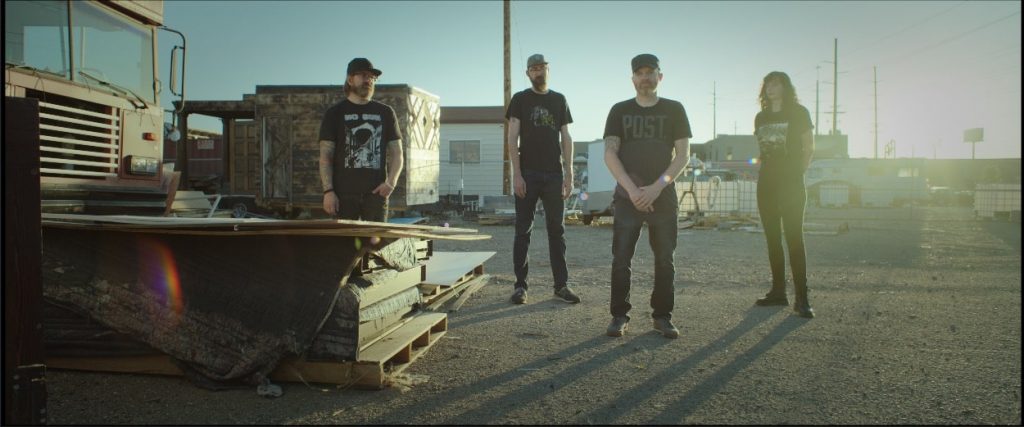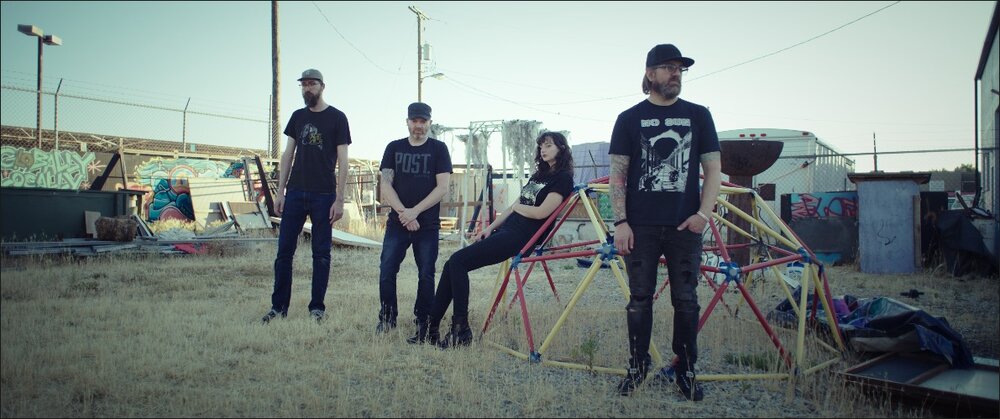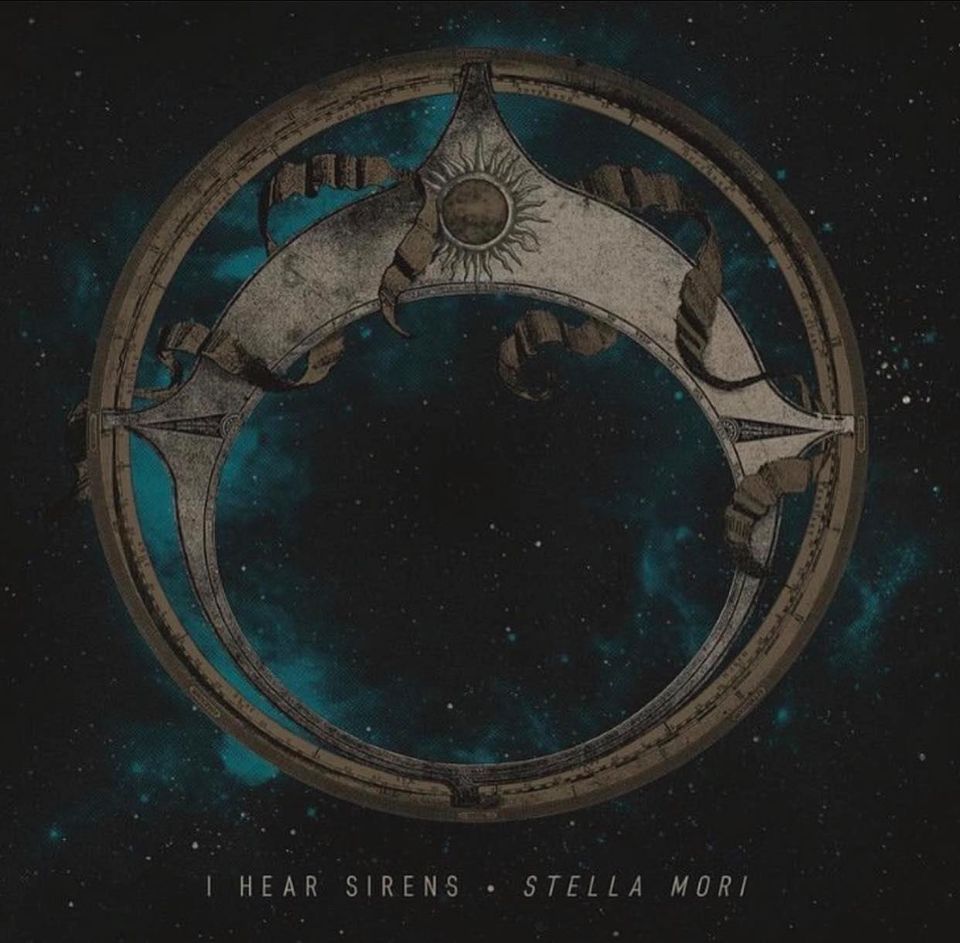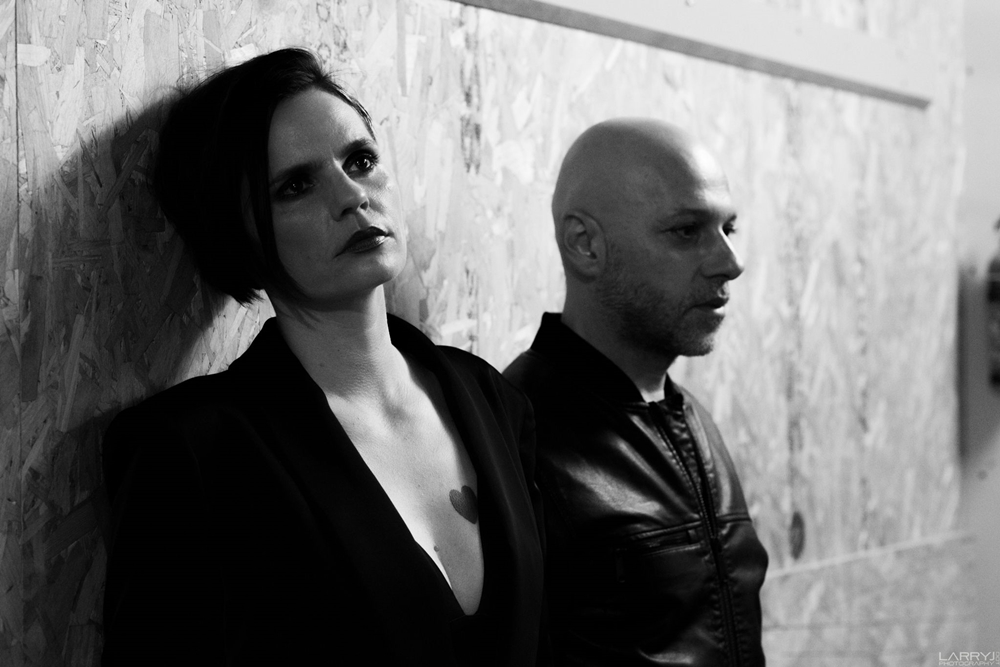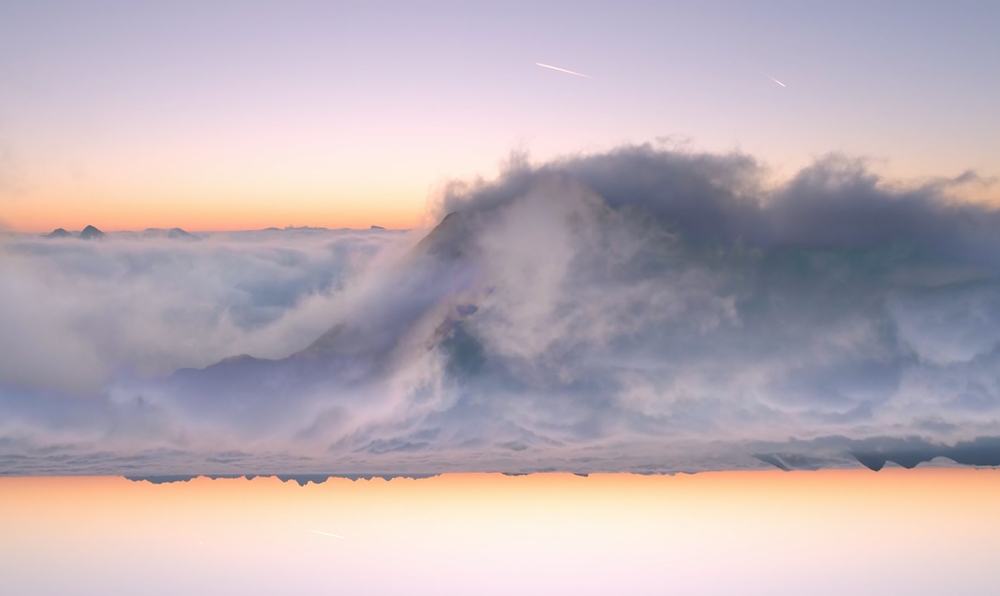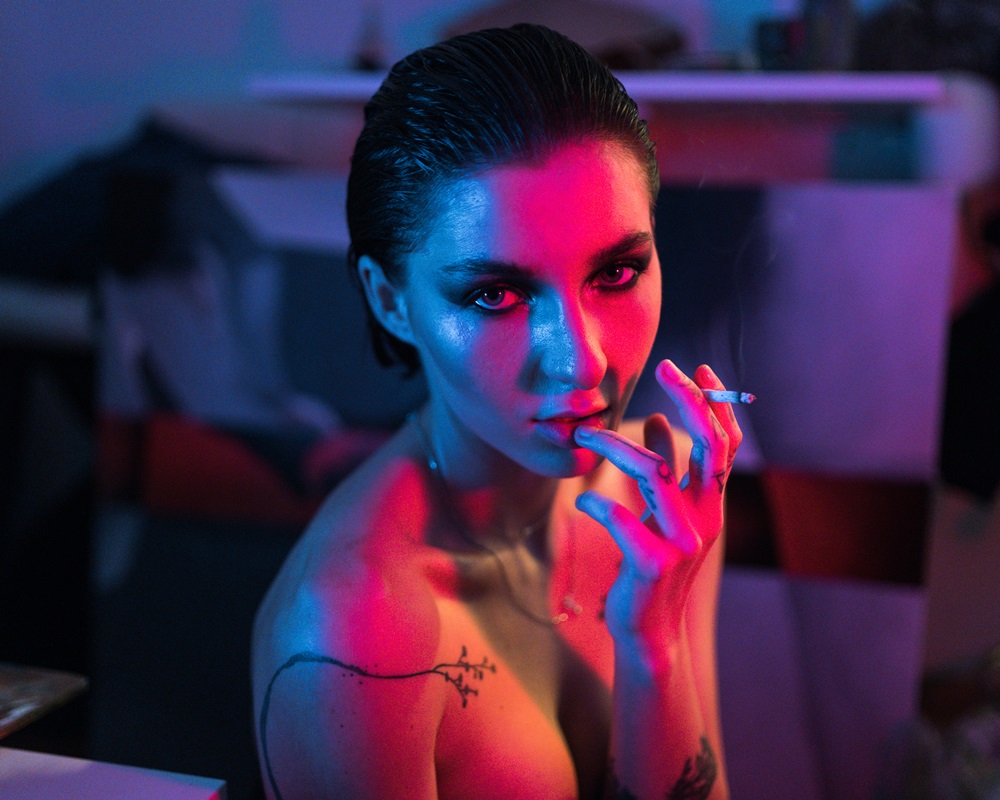I Hear Sirens is an American post-rock band that formed in the fall of 2005. Drawing inspiration from indie rock, post-hardcore, and ambient genres their sound seamlessly drifts between haunting melodies and climactic crescendos. Despite shifting lineups early in the project, their DIY attitude and strong appeal to fans have remained intact.
Growing up, was music always a big part of your life? Can you recall your first ever musical experience?
Trevor: Yes. We always had a piano in the house growing up. I took piano lessons when I was young, but caught the guitar bug at about 12. I would, of course, return to the keys later in life. I was also always the friend you would go to if you wanted to discover new bands.
David: Music has always been a big part of my life. My dad (R.I.P) would always play his records on his turntable. I would sit and listen with him to all his 70’s rock favorites through a pair of headphones. He also was a drummer which is why I became interested in learning and playing. He had a small little jam band that my friends and I would go watch a play in one of the band members’ basement. I wanted to be just like him so I picked up playing drums. I believe that the first actual concert that I attended was a classical music performance with my parents.
Sarita: My dad is a wicked guitarist, and I started piano lessons very young. There were always guitars around the house for me to noodle around with, and my dad gave me my first bass when I was a teenager. I was also a dancer from a young age, and modern dance was my big introduction to post-rock and similar genres.
Daved: Same as Trevor. We always had a piano in the house. I’d try to figure out how to play songs by ear that I liked, or TV and video game themes that I thought were cool. I got my first guitar at 17. That’s been my instrument of choice ever since.
I want to ask you about the bands that have been continuous influences for you, but also about new bands and new records that you think are exciting in the post-rock scene. What do you look at and say “that’s the future of this scene”?
Trevor: The Album Leaf is responsible for me giving up the guitar and playing keys and synths. I think in general, the future of the genre is about experimenting and challenging the “formula”. It is always refreshing when a band or a song throws me off and takes it in a direction I hadn’t predicted.
David: Led Zeppelin has always been one of the bands that I draw most of my inspiration from. John Bonham’s drumming was something pretty special and I always loved how powerful and creative his beats were. Other influences: The Cure, The Appleseed Cast, and Mogwai. As far as Post-Rock goes, lately, I’ve been listening to a lot of, ‘Barrens’, ‘Still Motions’, and ‘Of The Vine.’ These three bands all just released new albums this year and they are fantastic!
Sarita: Björk, Chelsea Wolfe, Emma Ruth Rundle, and Joanna Newsom are endlessly inspiring to me. I look up to these women, they ignite me! As for exciting new albums, I listen to post-metal a bit more, and I love the new Ulcerate, Cult of Luna, Russian Circles, and Spook The Horses records.
Daved: I think the late 90’s / early 2000’s emo and post-hardcore shaped my guitar style more than anything. Bands like The Appleseed Cast, Elliott, Grade, Thursday, and Thrice were a big influence for me.
Does the conception come first or does the song evolve naturally – do you have a clear idea of what it will be before you start to make it?
Trevor: Sometimes a song will start with a story, to which we write the soundtrack. Other times it is the opposite, where we end up building a story to reflect the mood and arc of the song. Our writing process is very collaborative.
‘Stella Mori‘ finally gets its awaited release after 7 years. How different or similar is it to ‘Beyond The Sea, Beneath The Sky‘?
Daved: I guess one similarity would be both of those albums were written without a bass player. I worked on some of the bass parts before at home, but most were made up in the studio while recording the albums. We kind of rushed ‘Beyond The Sea, Beneath The Sky.’ I don’t think we were ready to record when we did. We were way more prepared for ‘Stella Mori’ though. That’s pretty obvious to me when comparing how the two albums turned out.
‘Stella Mori‘ conveys a lot of emotions, can you introduce us to its creative process? What were your influences on this song?
Daved: We’re all a little fascinated with science and space. The combination of beauty and chaos. An ethereal atmosphere with dark undertones. That’s pretty evident on this record. Though a lot of it just sort of radiated from our struggles then.
Are there any expectations regarding a new album release, in these pandemic times?
Daved: I don’t know that we ever have any expectations for a new release. The most important thing is that we’re all happy with it. We hope people like it, but that’s not our reason for creating music.
Trevor: We are currently working on a batch of songs. The plus side of the pandemic, if there was one, is that we can focus on writing new material.
David: Right now is to get as much exposure to the album as possible. Once we get the green light to tour and this pandemic is under control we can get back to doing what we love, playing shows, and meeting and making new friends on the road. Until then the plan is to just work on writing the next album.
How do you feel the band has grown in the time since your first album, both personally and musically?
David: I feel that we have all matured more as musicians and that we’re at our strongest point as a band than we have ever been. In the past, we were more of a DIY outfit. Getting a band manager, and our new album being picked up by Post. Recordings and Dunk Records helped us a lot.
How strictly do you separate improvising and composing?
Trevor: Most of our songs start with a small idea on keys or guitar that we repeat and improvise over. I would say our best ideas come spontaneously. We get into trouble when we try and force something or overthink it.
David: Improvising is great for coming up with ideas which is something I think is extremely important for a band to be able to do together. For the actual composition part, I’d say we work best when the song starts to write itself.
There are many descriptions of the ideal state of mind for being creative. What is it like for you? What supports this ideal state of mind and what are distractions? Are there strategies to enter into this state more easily?
Trevor: I’m a little different. For me, I need some small distractions and a little bit of chaos around me to write music. Maybe a TV on low or some other sounds around me. If I could listen to music while I write my music, I’d do it.
David: I like to create a visual in my head that may or may not come from the music that we are playing at that time. Also, the mood plays a big part in the outcome of what I throw together on drums. I think the easiest way to create something is to simplify what you’re putting out there. A ‘less is more’ approach seems to work well during the creative process.
Sarita: Having ADHD means my creative flow is all or nothing, and when it’s all, that means several hours straight of recording, and then nothing for other several weeks. It’s usually spontaneous, but if I want to try to enter this state of creative flow, I clean and organize my workspace well, and block off hours in my calendar, like “RECORD AFTER WORK!!!”
What was your first studio like? How and for what reasons has your set-up evolved over the years and what are currently some of the most important pieces of gear for you?
Trevor: My first studio would have been a Tascam Portastudio 4 track tape recorder. While I believe that you can make fantastic music on less than perfect gear, my gear has certainly improved over the years. Right now I am particularly fond of a custom midi controller I made to trigger my Moog Minitaur with my feet.
David: My first studio was a small tiny garage with no ac or heat. We all had crappy equipment that sounded bad. I learned that you need to invest in good equipment and a decent studio that you wouldn’t mind sleeping in to make it work. You can’t be creative in a shitty environment. My most important pieces of gear that I own would be my Ludwig Classic Maple, (Bonham Green) drums and my Roland SPD-SX Sampler Pad.
Sarita: The first studio I got to use the most was at my university, but at home, I just sit on the floor with my guitar, MacBook, and Behringer UM2. My favorite piece of gear is my TC Electronics Hall of Fame II, I hear that shimmer effect in my dreams sometimes!
It is remarkable, in a way, that we have arrived in the 21st century with the basic concept of music still intact. Do you have a vision of music, an idea of what music could be beyond its current form?
Trevor: I feel like music has become incredibly accessible, which is good. But, it has also become more disposable. In other words, I feel like listeners will dig a track or album for maybe a week and then get tired of it. I like the idea of music being personal and shared in more intimate ways. It should be a shared experience. Something more real.
David: I can see music progressing to the point where it’s used more for therapeutic healing for combating some of our mental health issues. I often use it as my therapy whether it’s through composing, listening to, or teaching. Of course, not everyone would use it for this but it would be nice if it was pushed more as part of the regimen to help others out with their current situations that they are dealing with. I also would like to see music to be more accessible with funding so that the needed supplies are made available for teaching and learning in our schools. Music in our educational system should never be an option that they can eliminate because of funding issues. Nothing gives a kid more confidence than learning to play an instrument of their choosing. My vision would be for everyone interested in learning to play or teach music, that they’ll have all the necessary tools to do so.
Sarita: I have no idea what forms music could take 100 years from now, but I’m interested to see. I think music lessons and recording knowledge should be made as accessible as possible, so someone out there with the next great idea can get their art out into the world.
Follow I HEAR SIRENS on: Facebook | Bandcamp | Spotify | Website | Instagram
